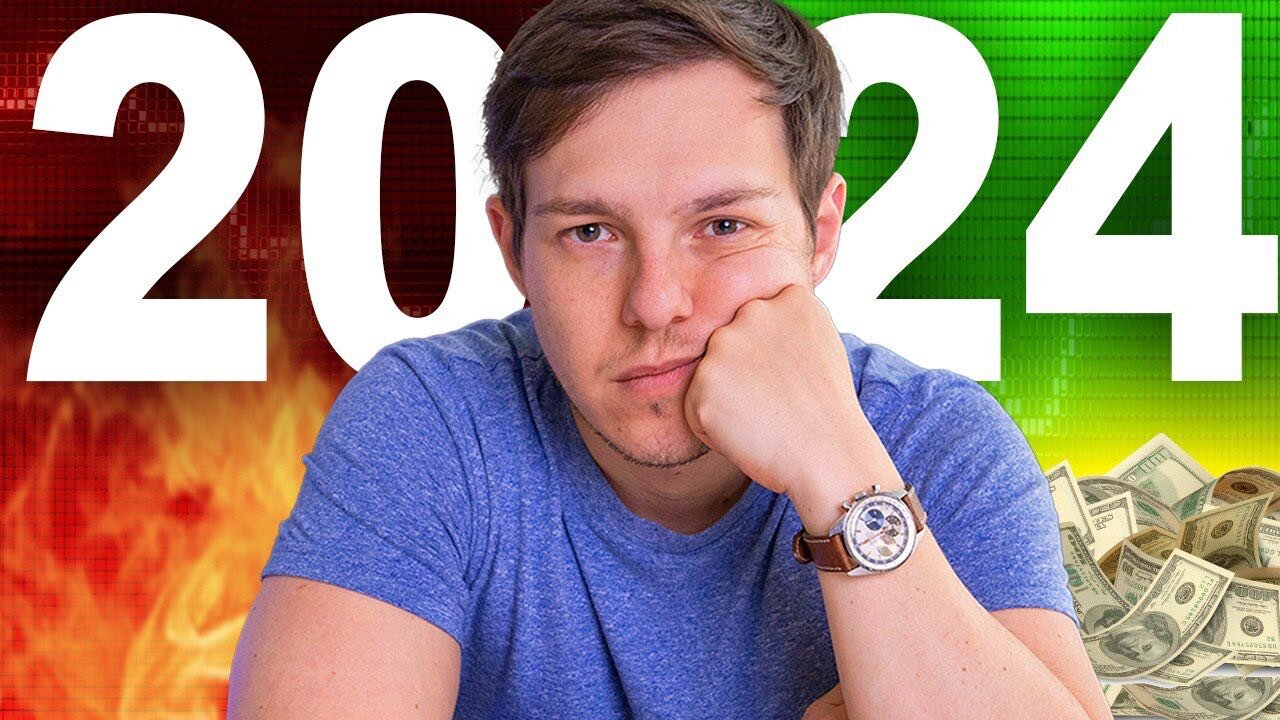Premium Only Content

It Started: The Reverse Market Crash Of 2024
THE REVERSE MARKET CRASH:
This occurs when prices suddenly balloon upwards, allowing a select few to build a substantial amount of wealth while everyone else gets left behind. According to Valuetianment, this is all part of a vicious cycle where the rich get richer while the poor get poorer.
PAST EXAMPLES:
In 1914, 4 German marks equaled $1 US dollar. However, after Germany lost W W 1, their economy was in shambles. This meant that they had to print so much money, that instead of it taking 4 marks to buy $1 US dollar - it required 1 trillion marks to buy $1 US dollar.
Zimbabwe Currency:
Their economy was extremely mismanaged. In addition to that, the government also printed vast sums of money to finance operations and ramp up production - as a result, this led to a complete loss in confidence in Zimbabwe currency, and caused asset values to skyrocket.
Argentina Currency:
Since 1980, it was said the AVERAGE inflation comes out to 206% per year. They’ve defaulted on their national debt almost a dozen times. They’ve printed so much money that, “in the last 10 years, the Argentine peso has lost 99 percent of its value against the dollar.”
Turkey Currency: Record-high inflation has correlated with record-high stock prices. In Iran, inflation reached a high of more than 50% with even higher stock prices - even Venezuela saw the same trajectory, as high inflation correlated with a reverse stock market crash upwards.
In terms of how this relates to the overall context of a “Reverse Market Crash" in the United States - Patrick made the point that every other economic catastrophe was also induced by temporary “negative’ interest rates - and, just like those other countries, we’ve also seen a dramatic run-up in the price of stocks, with the SP500 increasing by 6.5x since 2009.
Also, in all of these scenarios, there’s an abundance of borrowing and money printing, the government steps in to regulate the markets and enact price control, and this followed by a loss in confidence in the economy.
As far as what's happening here in the United States, it's important to mention this:
For Germany, their market increased 600% in 3 years - but, relative to the US dollar, their market declined by over 80%, completely negating any profits that were seemingly made on paper.
Zimbabwe is even more extreme: their index increased from 1000 to 553,000 - but, relative to US dollars, their market has crashed by more than 90%. The same thing also applies to Argentina - which saw a huge stock market spike - but, that actually equates to a 61% loss in purchasing power when converted to US dollars. In each of those cases, high stock values were NOT correlated with high or increasing purchasing power.
That's why I don’t think it’s quite a fair comparison to infer that the United States could face a similar fate to countries that see 200% inflation year over year, while the stock market sees a 10,000% reverse crash upwards. Systematically, there are so many fundamental differences to the point where, if that happens here - we have way bigger problems to deal with.
As far as what you can do, I think the really boring basic philosophies still hold true: Save more than you spend, invest in a diversified portfolio long term, and focus on what you can control, like your overhead, job skills, employability, and whether or not follow my newsletter :)
-
 44:53
44:53
Man in America
15 hours agoThe DISTURBING Truth About Tariffs That NO ONE Is Talking About
58.5K59 -
 32:30
32:30
Stephen Gardner
8 hours ago🚨BREAKING: Trump under INVESTIGATION for Stock Market Manipulation!
62.6K148 -
 59:50
59:50
Motherland Casino
5 hours agoMel x Zofie
29.6K5 -
 44:54
44:54
Ami's House
2 days agoThe Dave Smith Debate is Broken. Here's a Better Way In | Dave's Rogan Appearance
55.5K9 -
 3:47:20
3:47:20
SlingerGames
7 hours agoDiving (get it?) Back Into Subnautica!
31.8K1 -
 58:35
58:35
BonginoReport
11 hours agoFormer Trans Athlete Accepts Biological Reality - Nightly Scroll w/Hayley Caronia (Ep.24) - 04/10/25
157K99 -
 2:48:38
2:48:38
The Sufari Hub
7 hours ago🔴NOT ENDING STREAM TILL I WIN - ROAD TO #1 GAMER ON RUMBLE - #RumbleGaming
14.6K1 -
 1:49:21
1:49:21
Joker Effect
7 hours ago250$$ Giveaway! MOTHERLAND TAKEOVER!
27.8K -
![🔴 MAFIA III [first look]](https://1a-1791.com/video/fww1/21/s8/1/V/_/U/A/V_UAy.0kob-small--MAFIA-III-first-look.jpg) 3:01:30
3:01:30
Fragniac
1 day ago🔴 MAFIA III [first look]
17K2 -
 2:06:26
2:06:26
megimu32
9 hours agoON THE SUBJECT: Movies We Had Zero Business Watching.. But Totally Did!
30.1K2